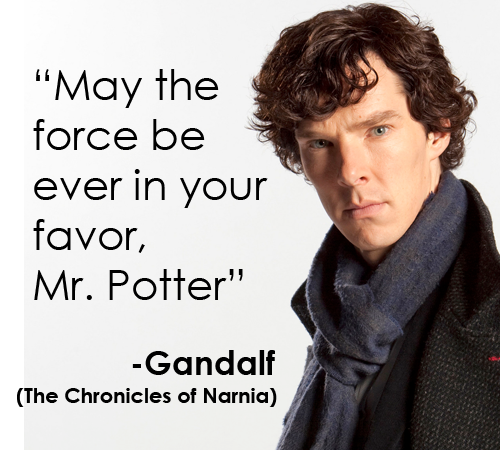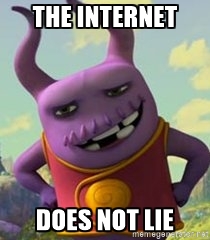Also, before I dive into Part 2, I wanted to announce that I was interviewed by Libby Heily last week, and it’s up on her blog, so please check it out! It will give you a little insight into my book and about working with Fantasy Works Publishing. Please pop on by!
And now, without further ado…
Did you know that people think they know a lot about you from your favorite social media account? There are actually plenty of people out there who firmly believe they know you based just on that. I must give them a hell of a time predicting with my collection of social media.
If you use Facebook, you’re a sheep, one of the crowd. I mean, come on. Great-Grandmothers use Facebook.
If you use Twitter, you’re a rabid fan, looking for contact with celebrities. You probably only got on there to talk to your favorite actor and you probably have never received a reply to any of the thousand tweets you’ve tweeted @him.
If you use Instagram, you are either self-involved and proving it with a countless number of selfies, or you are lying about your life and are proving it with well-lit photos of your surroundings looking perfect. Just out of frame of your perfect healthy meal is the tremendous bag of Oreos.
If you are on Pinterest you are a stay at home Mom or a perfectionist. After all, who else makes pretty DIY crafts like that?
If you are on Tumblr, you are probably a social justice warrior! And a hipster! You silly person, you. You couldn’t possibly have a decent opinion on real things, you delusional equality-believing artsy dummy! (written as an avid Tumblr poster since 2010).
So, how do you feel about that? Does any of that fit you?
Probably not. And there’s a reason for that.
Stereotypes of anything are bullshit.
The truth is that many different people post many different things on social media. The things we complain about are everywhere. But for every annoying post we run into, there is the ability to get news spread faster, the self-esteem boosting posts, people sharing love for their friends, the ability to find homes for animals, and just an increased awareness due to the spread of social media.
So we have an increased awareness of important news topics. And we also have an increased awareness of every. Single. Thing. That one poster ate in a given day. It comes with the territory and we’ll discuss that part further in a later edition of this series.
But for now, let’s talk about that glorious spread of information. When it is good, it is very very good, but when it is bad, it is HORRID.
 Though this meme is obviously a joke, it is a satire about the way people post incorrect memes all the time. Nobody in social media fact-checks. When some new bit of dubious information arises, it spreads like a damn plague before anybody realizes it could potentially be false.
Though this meme is obviously a joke, it is a satire about the way people post incorrect memes all the time. Nobody in social media fact-checks. When some new bit of dubious information arises, it spreads like a damn plague before anybody realizes it could potentially be false.
This is one of the major problems about the spread of information in the age of social media. We repost, we share, we retweet and reblog and pin, and we often don’t know the truth of the news we are sharing. We often don’t know what agenda the initial disseminator of the information has. We don’t pay attention. As Captain Smek from Home said of the internet, “The Internet does not lie.”

Sure, it doesn’t. The internet is a connected web of computers. It doesn’t lie. But the people who are putting information out to be shared through the web of computers? They lie. They lie plenty.
So remember, folks, if it’s on a website that is solely about your ideological bend, whatever that may be, you might want to double check those facts. And if you think you know something about a person based on what kind of social media they use, you might not want to base your stock portfolio on that great predictive mind of yours.
I’m sure you’ve all run into people like the ones I mentioned above. Feel free to share your tales of woe in the comments. And stay tuned for next week, when we discuss a need for approval and social blackmail.
